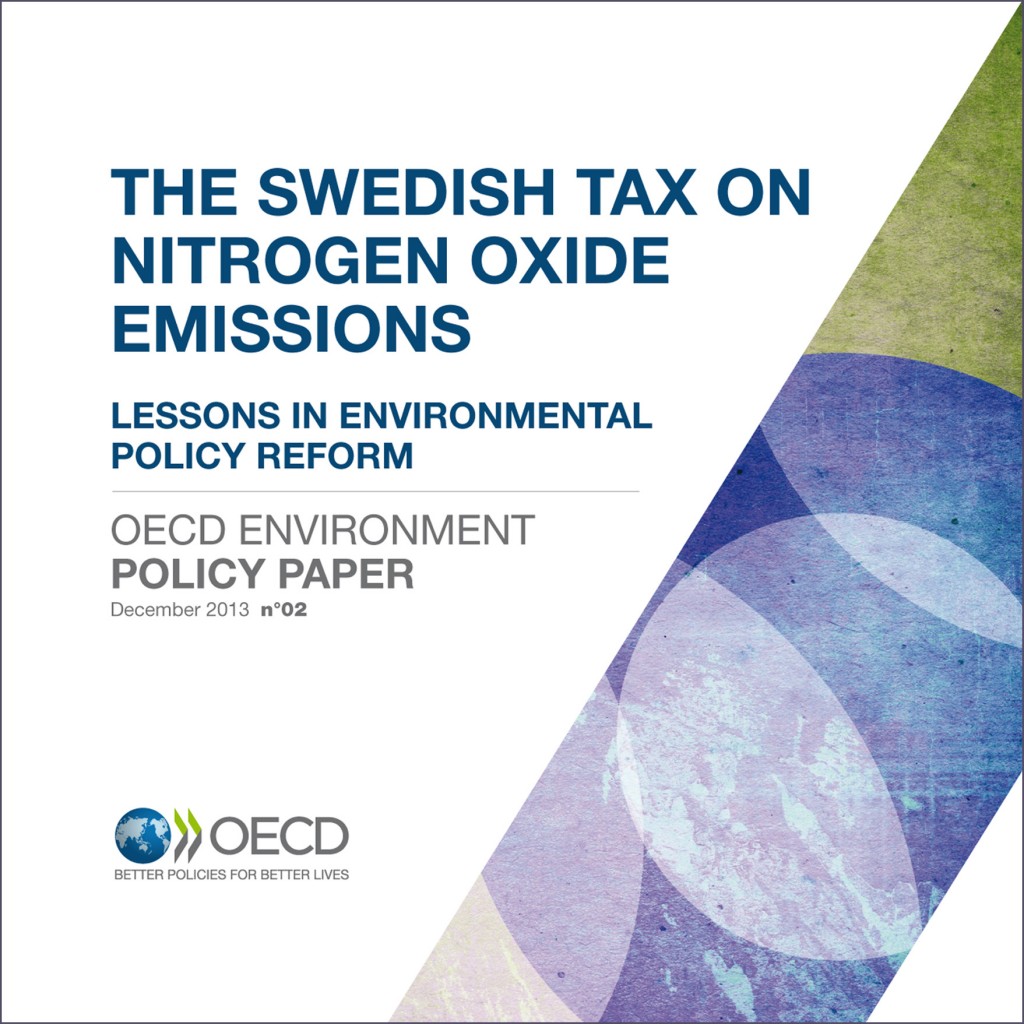OECD ENVIRONMENTAL POLICY PAPER
DICEMBRE 2013
Secretary-General of the OECD
《Sweden was facing a serious soil acidification and water eutrophication problem caused partly by emissions of nitrogen oxides (NOx) from combustion processes in transport, industry and power.
In 1992, Sweden introduced a high tax on NOx emissions from large combustion sources (e.g. power plants, industrial plants, waste incinerators). The tax was accompanied by a refund according to the amount of energy generated. This ensures that facilities with low NOx emission intensitites are net beneficiaries of the scheme. Continuous monitoring of emissions was also made mandatory. The tax was designed to accelerate and stimulate investment in advanced combustion and pollution-abatement technologies and as a supplement to existing regulatory measures.
A 35% reduction in NOx emissions from facilities covered by the tax within 20 months after the implementation of the tax; industry was encouraged to develop cheaper, more efficient technologies; and emission intensities of energy production have been cut by half … 》
English
